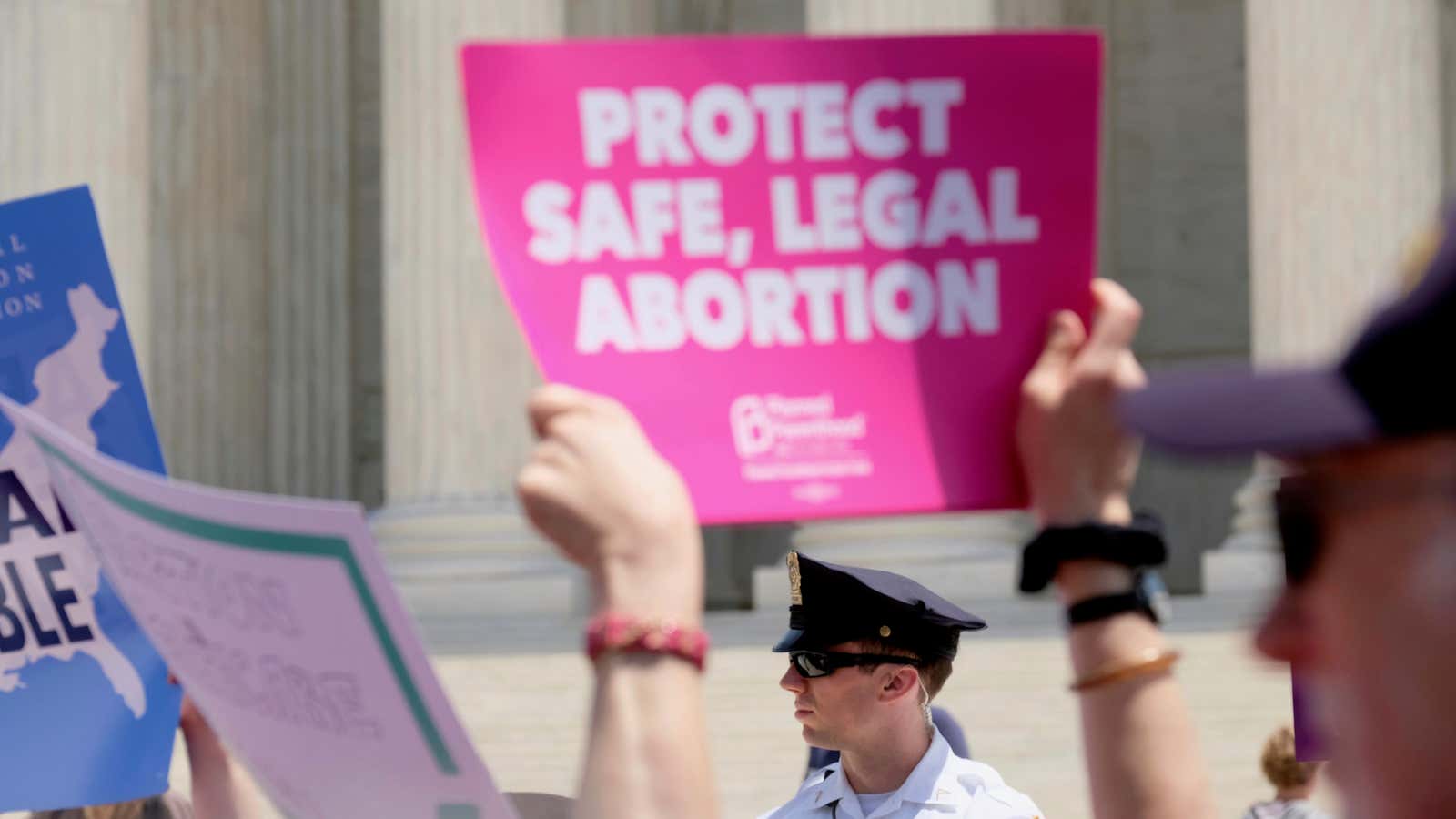The US Supreme Court today announced that it will hear a Louisiana abortion-rights case. Now, as the 2020 presidential campaign heats up, the court will hear decide its first case on the controversial topic since 2016.
Two new, Donald Trump-appointed justices, Neil Gorsuch and Brett Kavanaugh, were not on the court for the last such challenge.
A Louisiana law, which the high court stayed pending legal challenges, requires doctors who perform abortions at clinics to have admitting privileges in nearby hospitals. Challengers of this statute argue that, if it goes into effect, there will only be one abortion provider left in the state. They point out that the law is almost identical to a Texas requirement that the justices struck down in 2016.
Texas had argued that its law was intended to protect women’s health. Requiring abortion clinics to have facilities comparable to an ambulatory surgical center was put in place for the same reason, the state contended. The Supreme Court majority, in an opinion by Stephen Breyer, decided that there was no evidence of health benefits and that the restrictions required by the law significantly burdened women. The Texas law was deemed unconstitutional.
The Texas case was decided 5-3, following the death of justice Antonin Scalia, with chief justice John Roberts joining a dissent by Samuel Alito, along with Clarence Thomas. Justice Anthony Kennedy—known as the “swing vote”—was still on the bench and he joined the liberal justices, Breyer, Ruth Bader Ginsburg, Elena Kagan, and Sonia Sotomayor, in finding the law unconstitutional.
With Scalia and Kennedy having been replaced by Gorsuch and Kavanaugh, some onlookers think the results may be different for Louisiana. However, Roberts, who may be the new swing vote and is certainly trying to give the impression that the judiciary is apolitical, voted with liberals to stay the implementation of the Louisiana law pending a challenge in the Fifth Circuit Court of Appeals this year. And it’s not clear that the court will want to revisit relatively new precedent only to turn it over.
“Although we don’t know why Roberts voted to block Louisiana from enforcing the law, the challengers will no doubt hope to convince him that the law is so similar to the Texas law that the court invalidated just a few years ago that respect for precedent requires the justices to strike it down too,” writes Amy Howe of SCOTUSBlog. She notes that the justices have also agreed to take Louisiana’s related appeal, asking whether abortion providers even have the right to sue on behalf of patients, which may be significant.
There is rampant speculation surrounding the new case and what it means for women’s access to services. But no one knows yet. Based on the recent past, there is a chance that the justices will strike down the Louisiana law as unconstitutional and perhaps even affirm the clinics’ right to fight it in court.
